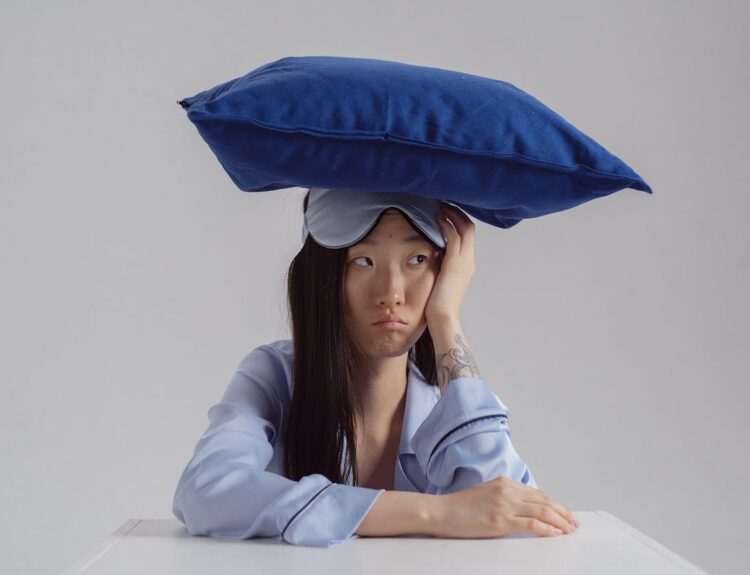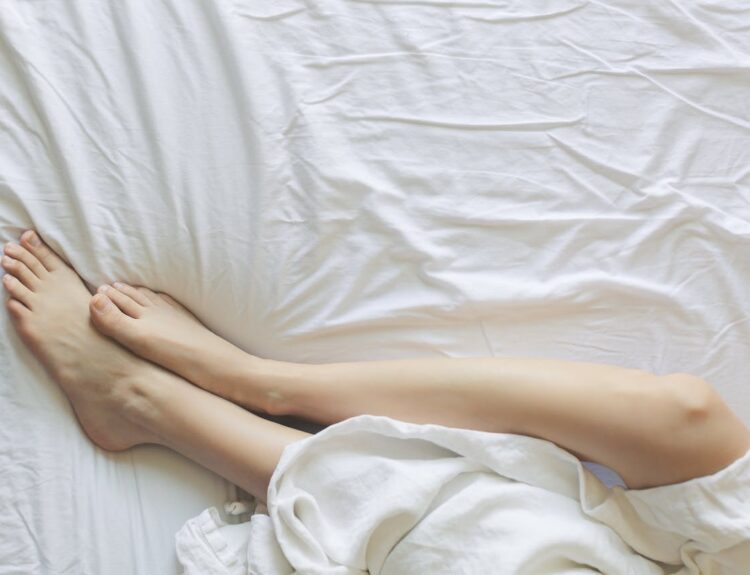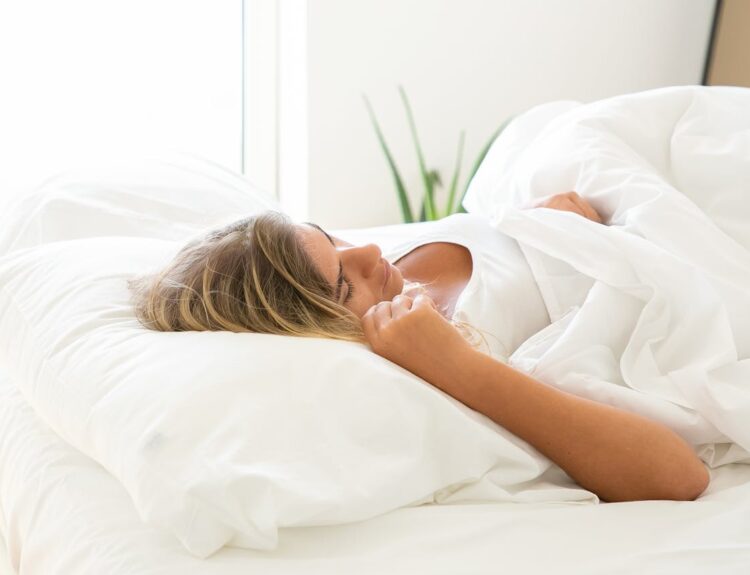Insomnia caused by alcohol consumption is a widespread issue that affects many individuals, disrupting their sleep patterns and overall sense of well-being. This article delves into the intricate relationship between alcohol and sleep, exploring how alcohol consumption can lead to insomnia. Here you can learn how to prevent insomnia caused by alcohol and improve your sleep quality for a more rejuvenated and well-rested life. So, let’s take the first step towards better sleep and a brighter tomorrow filled with vitality and energy!
In this article:
- What is insomnia?
- The link between alcohol consumption and insomnia
- Preventing insomnia caused by alcohol
- Alcohol withdrawal and insomnia
- Lifestyle changes to improve sleep
WHAT IS INSOMNIA?
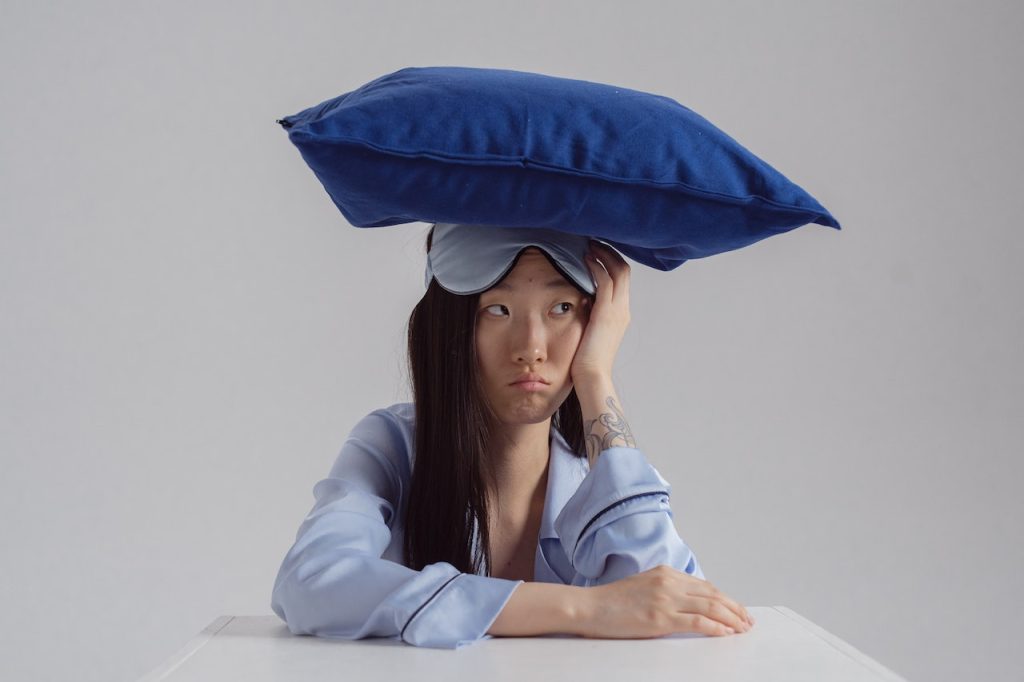
Insomnia, as a sleep disorder, affects more and more people worldwide. It can be difficulty falling asleep, staying asleep, or experiencing non-restorative sleep despite having the opportunity for adequate sleep. Individuals with insomnia often toss and turn in bed, feeling frustrated and exhausted as the night continues.
The experience of insomnia can vary from person to person. Some individuals may have trouble falling asleep at the beginning of the night, while others may wake up frequently and struggle to fall back asleep. In some cases, people with insomnia may wake up too early in the morning and find it challenging to go back to sleep, even though they are still tired.
Insomnia can significantly impact a person’s daily functioning and overall well-being. It can lead to daytime sleepiness, difficulty concentrating, irritability, and impaired performance at work or school. Over time, chronic insomnia can take a toll on mental health, contributing to increased stress, anxiety, and depression.
There are two main types of insomnia:
- Acute
- Chronic
Acute insomnia is typically short-term and often related to a specific event or circumstance, such as a stressful life event, jet lag, or a sudden change in sleep schedule. Once you address the underlying cause, it typically resolves on its own.
Chronic insomnia, on the other hand, persists for at least three nights a week for three months or longer. It may have multiple underlying causes, including medical conditions, mental health disorders, substance use, or certain medications.
Alongside the traditional classifications of acute and chronic insomnia, experts increasingly recognize insomnia caused by alcohol as a distinct category. You can learn more about it in the rest of the text.
THE LINK BETWEEN ALCOHOL CONSUMPTION AND INSOMNIA
Many people turn to alcohol to help them relax and fall asleep faster. However, while alcohol may initially make you sleepy, it disrupts sleep patterns and leads to insomnia caused by alcohol.
Alcohol affects the different stages of sleep and can significantly impact sleep quality. Studies have found that alcohol reduces the amount of so-called rapid eye movement sleep (REM), which is crucial for restorative rest. REM sleep is associated with dreaming, memory consolidation, and emotional processing. So, when alcohol interferes with REM sleep, you’re more likely to experience shallow and fragmented sleep, leaving you tired and less refreshed in the morning.
Moreover, alcohol can cause more awakenings at night, leading to shorter sleep duration. While it may help you fall asleep faster initially, your sleep is often disrupted by more frequent waking up. This disrupts your sleep pattern and can leave you feeling groggy and not well-rested, despite spending what should have been enough time in bed.
Additionally, alcohol can worsen existing sleep disorders or contribute to the development of new ones. For example, if you already have sleep apnea, which involves breathing interruptions during sleep, alcohol can make the symptoms worse. This is because alcohol relaxes the muscles, which can further disrupt your breathing patterns and lead to more frequent awakenings throughout the night.
By making informed choices about alcohol and seeking support when needed, you can take steps towards better sleep and break the cycle of insomnia caused by alcohol.
PREVENTING INSOMNIA CAUSED BY ALCOHOL
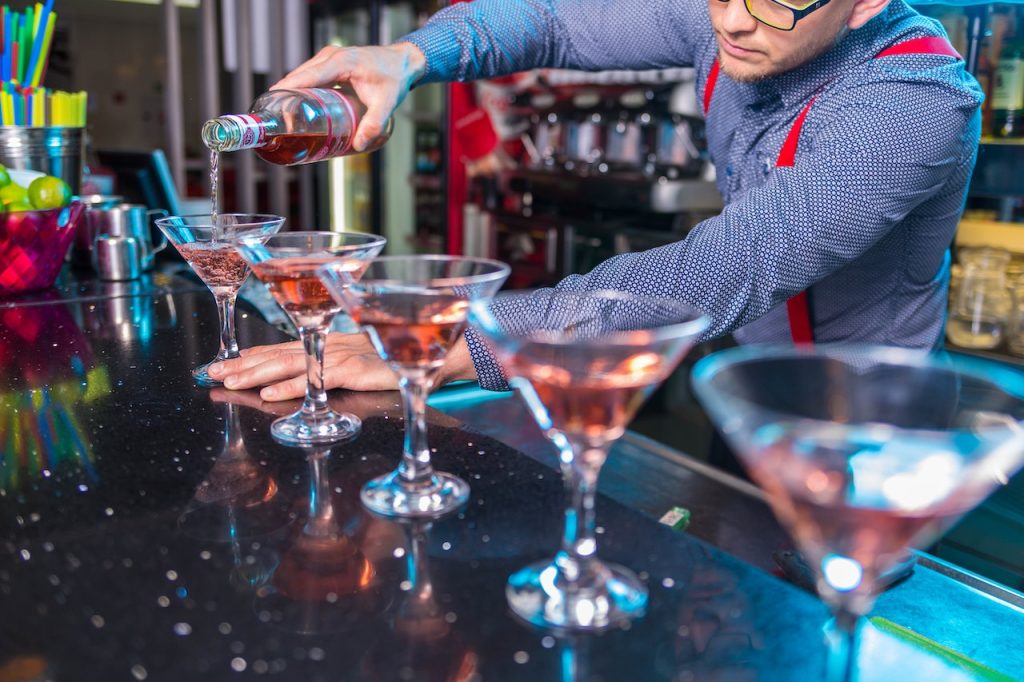
Preventing insomnia caused by alcohol is an essential aspect of prioritizing healthy sleep habits and overall well-being. While alcohol can disrupt sleep, there are ways to reduce the likelihood of encountering sleep difficulties after consuming it.
First and foremost, moderation is key. Consuming alcohol in moderate amounts can help minimize its impact on your sleep. By setting limits and knowing your tolerance, you can find a balance that allows you to enjoy socializing without sacrificing your sleep quality. Being aware of the recommended guidelines for alcohol consumption can significantly prevent insomnia caused by alcohol.
It’s also essential to pay attention to timing. Avoid consuming alcohol too close to bedtime. Give your body enough time to metabolize the alcohol before hitting the sheets, allowing a smoother transition into a restful night’s sleep.
Lastly, seeking professional help is crucial if you struggle with alcohol use disorder or chronic insomnia. A healthcare provider or sleep specialist can provide personalized guidance and interventions tailored to your needs. They can offer strategies like cognitive-behavioral therapy for insomnia (CBT-I) or recommend suitable treatments to address any underlying issues contributing to your sleep difficulties.
Remember, preventing insomnia caused by alcohol is within your control. By adopting a mindful approach and practicing moderation, you can optimize your sleep quality and wake up refreshed, ready to embrace each day with vitality and energy.
ALCOHOL WITHDRAWAL AND INSOMNIA
Alcohol withdrawal and insomnia can present challenges for individuals who are reducing or discontinuing their alcohol consumption. When someone who regularly consumes alcohol suddenly stops or significantly decreases their intake, they may experience withdrawal symptoms like difficulty falling asleep or staying asleep.
It’s important to understand that alcohol withdrawal can disrupt sleep patterns, leading to insomnia. However, it’s crucial to approach this situation with optimism and a proactive mindset. You can overcome these temporary sleep disturbances and achieve restful nights with the right strategies and support.
Seeking professional help is key during alcohol withdrawal. An addiction specialist will help you develop a comprehensive plan to manage withdrawal symptoms, including insomnia, safely and effectively.
Implementing healthy sleep habits is also vital during this period. A regular sleep schedule can regulate your body’s internal clock and improve sleep quality.
Relaxation before bed can help alleviate anxiety and promote better sleep. Consider incorporating deep breathing techniques, progressive muscle relaxation, or gentle stretching into your nightly routine. These activities can help calm your mind and body and make it easier to fall asleep and stay asleep.
Practicing self-care and prioritizing your overall well-being is essential during this challenging time. Include regular exercise in your daily routine, eat a balanced diet, and manage stress through activities like hobbies or leisure time in nature.
Remember, alcohol withdrawal and insomnia are temporary obstacles that you can overcome. By following these tips, you can navigate this period optimistically and pave the way for restful nights and improved overall sleep quality.
LIFESTYLE CHANGES TO IMPROVE SLEEP
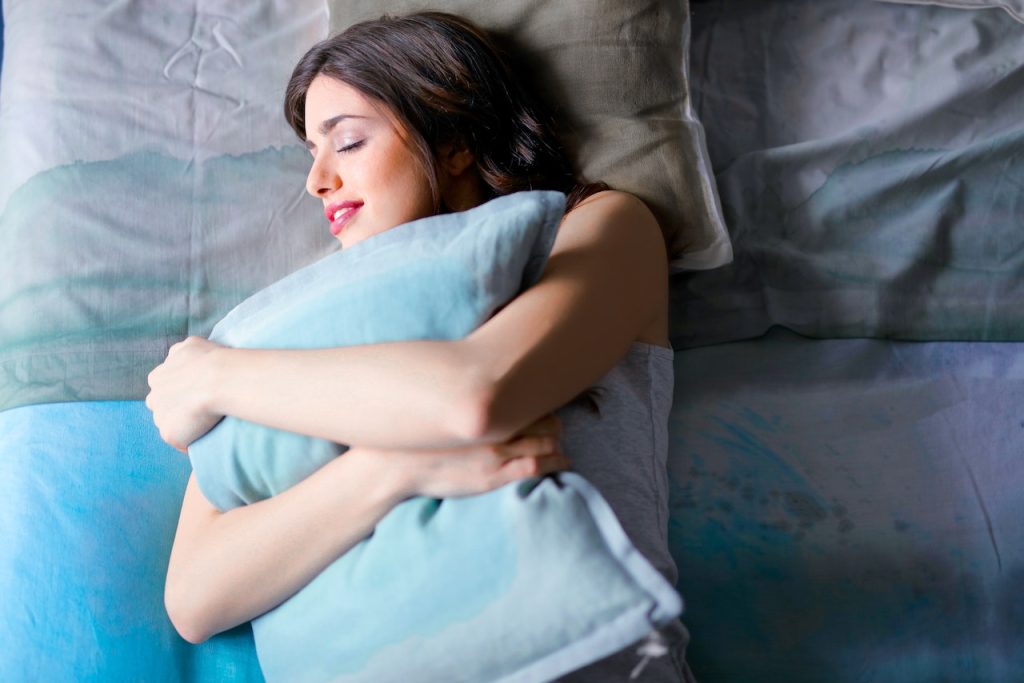
If you’re struggling with insomnia caused by alcohol, incorporating specific lifestyle changes can significantly improve your sleep quality and overall well-being. By adjusting your daily routine and habits positively, you can create a sleep-friendly environment and set the stage for restful nights and rejuvenating sleep.
Nourish your body with a sleep-boosting diet
- Embrace a well-balanced plate: Incorporate nutritious foods, including whole grains, lean proteins, fruits, and vegetables, to support better sleep.
- Sip soothing herbal teas: Opt for caffeine-free herbal teas like chamomile or lavender before bedtime to promote relaxation.
- Hydrate wisely: Limit excessive fluid intake before bed to minimize nighttime trips to the bathroom that may disrupt sleep.
Energize your days with regular physical activity
- Discover fun activities: Engage in activities you love, whether dancing, hiking, or playing a sport, to keep physical activity enjoyable and sustainable.
- Bask in daylight: Spend time outdoors during the day to soak up natural light, which helps regulate your body’s internal clock and improve sleep-wake cycles.
- Unwind with gentle evening exercises: Opt for calming activities like yoga or tai chi to release tension and prepare your body for rest.
Embrace serenity and stress management
- Practice mindfulness: Incorporate meditation and deep breathing techniques to reduce stress and racing thoughts before bedtime.
- Create a relaxation sanctuary: Designate a tranquil space in your home where you can unwind with soothing activities like reading, journaling, or listening to calming music.
- Engage in positive affirmations: Cultivate a positive mindset by affirming your sleep goals and expressing gratitude for restful moments.
Craft a sleep-inducing bedtime ritual
- Set the mood: Dim the lights to signal to your body that it’s time to wind down and prepare for sleep.
- Pamper yourself: Indulge in a warm bath or shower to relax your muscles and soothe your mind before tucking in for the night.
- Curate a cozy sleep sanctuary: Invest in comfortable bedding, supportive pillows, and calming scents to make your bedroom a haven for sleep.
_____
By implementing the preventive measures and lifestyle changes discussed in this article, you can take charge of your sleep and bid farewell to insomnia caused by alcohol. Begin your path to better sleep with small but impactful changes. Take control of your sleep health and invest in an energy, vitality, and well-being-filled future!
This post may contain affiliate links. You can read the affiliate disclosure here.




